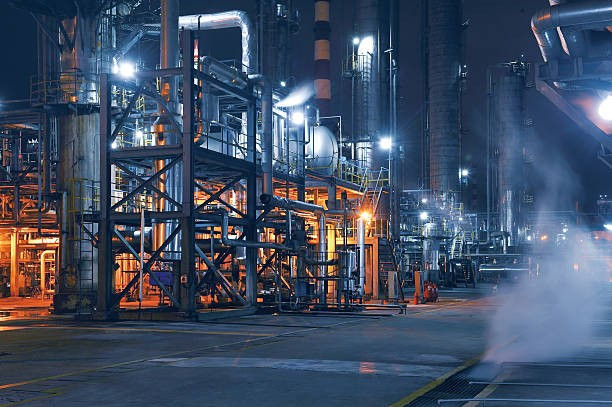Industrial photography in Toronto is a niche field that requires specialized skills. Industrial photographers are responsible for producing high-quality images of industrial equipment, plants, or buildings. Industrial photography can be performed on location or in the studio with models made to look like machines. Industrial photographers must have an eye for detail and be able to work quickly under tight deadlines. This post will discuss how to choose an Industrial Photographer that best suits you and your business.

1. Experience and Skill
Industrial photographers need to understand lighting and its effects on machinery. For example, some metals reflect more light than others, causing them to appear different on camera. This is essential for capturing images of equipment with shiny chrome or silver parts. Industrial photographers also must be able to adapt quickly when the environment might affect their photography plan. Equipment may have to be moved from one part of a factory to another, so an industrial photographer must have the skills and experience to work under pressure.
If you happen to be in Toronto, you should know that industrial photography in Toronto also requires CAD software or other computer image editing software. Industrial photographers need this expertise to remove objects from photos, create digital mock-ups of equipment, scale images properly, and add colour or logo effects. Although these skills can be learned, it is essential to have a photographer who has the experience needed for complex projects.
2. Location and Time Frame
Industrial photographers should always have an onsite visit to review any project’s location and time frame before signing a contract. A factory may not allow photography at certain times due to the high risk of equipment malfunctioning or posing a safety hazard. Therefore, the photographer should visit first and assess whether industrial photography should be done onsite or in the studio.
3. Pricing and Payment Methods
Industrial photographers price their services according to project type, location, complexity, and time frame. They may charge by the hour or by the day. Payments may also be due before the project starts or after the final photos are delivered. Discussing payment options and terms in advance will help minimize any unexpected costs during the project.
4. Communication and Trust
Industrial photographers must work well with their clients and other members of a team, such as graphic designers. This requires clear, open communication as the client will supply input and ideas as well. The photographer should work with different personalities and professionally handle feedback, always considering the client’s point of view first.
In addition, industrial photography projects can take days or weeks to complete. A client should feel confident in the photographer’s ability to deliver a high-quality product within a reasonable time frame.
5. Creativity and Experience
Industrial photographers must have experience with machine subjects and be able to photograph them well for marketing purposes. Clients will want images that are attractive, creative, and memorable. An industrial photographer must use lighting, angles, and positioning to produce these types of images.
Industrial photography is highly specialized, requiring the right mix of skills and experience. It also requires clear communication with clients who are knowledgeable about the industry. To find an industrial photographer that will meet your needs, you should have a list of questions ready before starting your search. This post will discuss some of the most important questions to consider during an industrial photography interview process.
Interview Questions
1. What is Your Creative Vision?
Industrial photographers should be able to detail their creative vision for a project so that you can decide whether it aligns with your goals and expectations of the photography. They should explain how they would achieve their vision using lighting, set design, props, models, and post-production techniques.
2. What Type of Equipment Do You Own?
Industrial photographers should own high-end digital SLR cameras with interchangeable lenses for different types of shots. Professional grade tripods are also essential for continuously shooting during a long shoot. The photographer should also have lighting equipment, backdrops and props, and other tools to create the images you want.
3. How Do You Handle Customer Service?
Industrial photographers do not typically deal with clients directly because they work under contract for their chosen advertising agency or marketing team. However, the photographer should explain how they will communicate with their client throughout the project. They should also talk about problem-solving, timeliness, and other customer service-related issues that may arise.
4. How Do You Handle Feedback?
Industrial photographers must always consider the client’s point of view during a project; therefore, they must work well with their clients in terms of feedback. They should be open to suggestions and willing to make changes during the shoot or editing process if needed.
5. What is Your Approach to Lighting?
Photography, especially industrial photography, which often takes place in a warehouse or other large building, can be difficult for natural lighting. Industrial photographers should be skilled with artificial lighting techniques and equipment to create the desired effect in a photoshoot. They should also provide examples of their past work which demonstrates this ability.
6. What Types of Subjects Have You Photographed?
Industrial photography is often used for business purposes, such as showing off a machine’s features and functions to potential clients. Industrial photographers should have experience taking photographs of machines, tools, vehicles, and other industrial equipment in various settings. They should also be able to tell you about any imagery they have created for marketing purposes, including these types of subjects.
Contact us today for a free consultation on your project.
